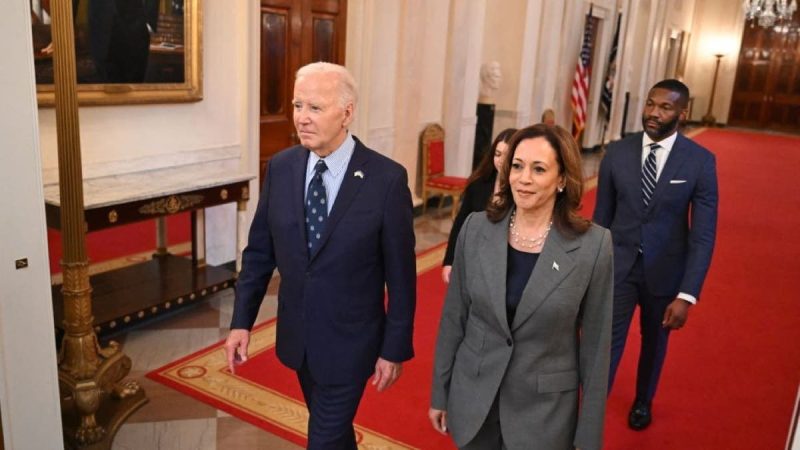
Experts Highlight Significant Contrasts in Biden-Harris Administration’s Approach to Ukraine and Israel Conflicts
The Biden-Harris administration’s approach to the ongoing conflicts in Ukraine and Israel has attracted significant attention from experts who have noted substantial differences in the administration’s treatment of the two situations. When analyzing the responses to these conflicts, several key factors emerge that highlight the contrasting strategies employed by the administration.
Starting with the conflict in Ukraine, President Biden has taken a firm stance in support of Ukraine’s sovereignty and territorial integrity. The administration has continued to provide military assistance to Ukraine, including lethal weapons, in its efforts to resist Russian aggression. Moreover, diplomatic efforts have been made to increase international pressure on Russia and to seek a peaceful resolution to the conflict. Experts commend the administration for its consistent support for Ukraine and for standing up to Russian aggression in the region.
On the other hand, the administration’s approach to the conflict between Israel and Hamas in Gaza has been characterized by a more cautious and nuanced stance. While reaffirming the US’s commitment to Israel’s security, President Biden has called for a ceasefire and expressed concerns about civilian casualties on both sides. The administration has also engaged in diplomatic efforts to de-escalate the conflict and facilitate humanitarian assistance to the people of Gaza. Experts note that the administration’s approach to the Israel-Palestine conflict differs significantly from the previous administration’s unequivocal support for Israel, signaling a more balanced and diplomatic approach.
One key factor that contributes to the differing treatment of the two conflicts is the complex regional dynamics at play. The conflict in Ukraine is deeply intertwined with broader geopolitical tensions between Russia, Europe, and the US, making it a critical issue for US foreign policy. In contrast, the Israel-Palestine conflict is a longstanding and deeply entrenched issue with no easy solutions, requiring a more delicate and multilateral approach.
Moreover, domestic political considerations also influence the administration’s responses to the conflicts. President Biden faces pressure from both sides of the political spectrum on the Israel-Palestine issue, with progressive Democrats calling for a more assertive stance against Israel’s actions and conservative Republicans urging unwavering support for Israel. This political tightrope has forced the administration to strike a delicate balance in its approach to the conflict.
In conclusion, the Biden-Harris administration’s treatment of the conflicts in Ukraine and Israel reflects a nuanced and strategic approach that takes into account the complexities of each situation. While the administration has shown unwavering support for Ukraine in its resistance against Russian aggression, it has also called for a ceasefire and diplomatic solutions in the Israel-Palestine conflict. Moving forward, it will be crucial for the administration to navigate these complex issues with care and diplomacy to achieve lasting peace and stability in both regions.